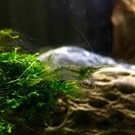-
Must Read SKF Articles
-
Posts
-

By ngoomie · Posted
Alright, I've done a bit more research on gentian violet's cancer-causing potential but I haven't yet done research on malachite green's to compare. But from reading the California propositon 65 document about GV (North Americans incl. some Canadians will recognize this as the law that causes some products they buy to be labelled with "known to the state of California to cause cancer", including the exact product I bought) it seems that the risk of cancer is related to internal use, either injection or ingestion. Speaking of ingestion, I think GV bans mainly relate to its use in treating fish/shrimp/etc. which are intended for human consumption, because of the above. And in countries where GV isn't banned for this purpose, it does seem to get used on various species of shrimp without causing any issue for the shrimp themselves (at least enough so for shrimp farming purposes). See the following: In February, the FDA Began Rejecting Imported Shrimp for Gentian Violet and Chloramphenicol (2022 article by Southern Shrimp Alliance) FDA Starts New Calendar Year by Refusing Antibiotic-Contaminated Shrimp from Three BAP-Certified Indian Processors and Adding a BAP-Certified Vietnamese Processor to Import Alert (2024 article by Southern Shrimp Alliance) Southern Shrimp Alliance and some other organizations have tons of other articles in this vein, but I'd be here for a while and would end up writing an absolutely massive post if I were to link every instance I found of articles mentioning shrimp shipments with gentian violet and/or leucogentian violet registering as contaminants. That being said, I know shrimp farmed for consumption and dwarf shrimp are often somewhat distantly related (in fact, the one time a shrimp's species name is listed that I can see, it's the prawn sp. Macrobrachium rosenbergii, who at best occupies the same infraorder as Neocaridina davidi but nothing nearer), but this at least gives a slightly better way of guessing whether it will be safe for aquarium dwarf shrimp or not than my bladder snail anecdote from the OP. -
By sdlTBfanUK · Posted
I would hazard a guess that perhaps those eggs were unfertilized and thereby unviable? Did the eggs change colour, usually yellow to grey as the yolks used up, or any eyes in the eggs. Is your water ok, using RO remineralised and the parameters in range, as I have heard others say that if the water isn't good it can 'force' a molt? How is it going overall, do you have a good size colony in the tank, you may have reached 'maximum occupancy' as a tank can only support so many occupants. -
By beanbag · Posted
Hello folks, The current problem I am having is that my Taiwan bee shrimp are molting before all their eggs have hatched. Often the shrimp keep the eggs for 40+ days. During that time, they lose about half or so, either due to dropping or duds or whatever. Shortly before molting they look to have about a dozen left, and then they molt with about half a dozen eggs still on the shell. Then the other shirmp will come and eat the shell. These last few times, I have been getting around 0-3 surviving babies per batch. I figure I can make the eggs hatch faster by raising the water temperature more (currently around 68F, which is already a few degrees higher than I used to keep it) or make the shrimp grow slower by feeding them less (protein). Currently I feed Shrimp King complete every other day, and also a small dab of Shrimp Fit alternating days. Maybe I can start alternating with more vegetable food like mulberry? or just decrease the amount of food? -

By ngoomie · Posted
Yeah, cancer risk was a thing I'd seen mentioned a lot when looking into gentian violet briefly. I kinda just figured it might only be as bad as the cancer risk of malachite green as well, but maybe I should look into it more. I've been doing a pretty good job of not getting it on my skin and also avoiding dunking my unprotected hands into the tank water while treating my fish at least, though. Maybe I'll just not use it once I'm done this course of medication anyways, because I know a store I can sometimes get to that's pretty distant carries both malachite green and methylene blue, and in pretty large quantities. -

By jayc · Posted
Can't help you with Gentian Violet, sorry. It is banned in Australia violet for potential toxicity, and even possible cancer risks. I thought it was banned in Canada as well. At least, you now know why there isn't much info on gentian violet medication and it's use. But keep an eye on the snails after a week. If it affects the snails, it might not kill them immediately. So keep checking for up to a week. Much safer options out there. No point risking your own life over unsafe products.
-


Recommended Posts
Create an account or sign in to comment
You need to be a member in order to leave a comment
Create an account
Sign up for a new account in our community. It's easy!
Register a new accountSign in
Already have an account? Sign in here.
Sign In Now